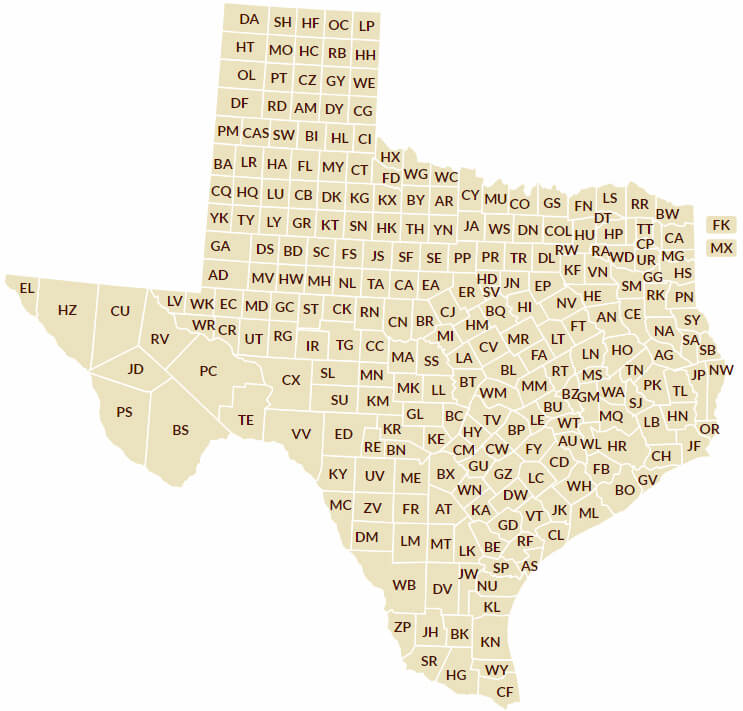Attorneys who are board certified in criminal appellate law by the Texas Board of Legal Specialization (TBLS) have passed an exam that demonstrates their substantial knowledge of significant legal concepts and corresponding skills in criminal appellate law.
The exam consists of a three-hour morning session with three essay questions each worth 100 points and a three-hour afternoon session with 100 multiple-choice questions (10 of which involve professional ethics) each worth 2 points. The required passing score is 350.
The TBLS Exam Specifications for criminal appellate law were revised on July of 2019. An attorney who applies to become board certified in criminal appellate law is expected to understand the entire process of appeals of state and federal criminal cases, as well as applications for extraordinary relief and post-conviction writ proceedings in state and federal court including:
- Matters Arising in the Trial Court (State and Federal)
- Motion for new trial
- Preservation of error
- Certification of appeal
- Perfection of appeal
- Appeals from deferred adjudication and motions to revoke
- Orders and judgments that can be appealed
- Post-judgment orders, e.g., nunc pro tunc, resentencing, restitution
- The appellate record
- Indigency on appeal/appointed counsel/free record
- Direct Appeal (State Courts of Appeal and Federal Fifth Circuit)
- Docketing statement
- Deadlines and timelines for appeal
- Appellate jurisdiction
- Requisites of the brief
- Motions
- Abatements and remands
- Anders briefs
- Non-record material and references
- Citation of authority; reasons for publication
- Standards of review
- Sufficiency of the evidence
- Opinions and mandates
- Motions for rehearing and reconsideration en banc
- Fundamental error / Structural error
- Harmless error
- Jury charges
- Discretionary Review (CCA and Supreme Court of the United States)
- a. Deadlines and timelines
- b. Requisites of the petition
- c. Reasons for review
- d. Preservation issues in the CCA
- e. Degrate petitions
- f. Federal questions and petitions for certiorari
- g. Non-compliant petitions
- h. Motions
- i. Petition for discretionary review vs. brief on the merits
- j. Direct appeals in death penalty cases
- k. Petitions for certiorari in the U.S. Supreme Court
- Writs of Habeas Corpus and Other Extraordinary Writs
- Pre-trial writs of habeas corpus
- Writs of mandamus and prohibition
- When appropriate
- Cognizable issues
- Subsequent Applications
- Record
- Filing
- Misdemeanor post-conviction writs
- 11.072 writs--community supervision
- 11.07 post-conviction writs
- Application form
- Cognizable issues
- Subsequent Applications
- Subsequent writs
- Deadlines and laches
- Pleading requirements
- Effect of State’s failure to respond; convicting court’s failure to act
- Findings of fact and conclusions of law
- 11.071 post-conviction death penalty writs
- Federal writs under 28 U.S.C. §2254
- Exhaustion
- AEDPA
- Timelines and deadlines
- Application form
- Procedural bars and equity issues
- Federal writs under 28 U.S.C. §2255
- Rule 60(b) of the Federal Rules of Civil Procedure
- Miscellaneous
- Oral Argument
- Juvenile appeals
- Appeals from municipal and justice of the peace judgments
- Right to an attorney/self-representation
- Attorney obligations to inform the client
- State’s right to appeal–Art. 44.01
- Retroactivity of appellate decisions
- Bail on appeal
- Extradition appeals
- Chapter 64 appeals
- Expunctions
- Non-disclosures
- Competency to be executed
- The Texas Disciplinary Rules of Profession. The ethics questions regarding this topic will involve an array of hypothetical fact situations which will cover several different aspects of ethical issues that arise in the practice of law. The questions will not be limited to the practice of any one specialty area, and consequently, an applicant is advised to be familiar with all provisions of the TDRPC.






































